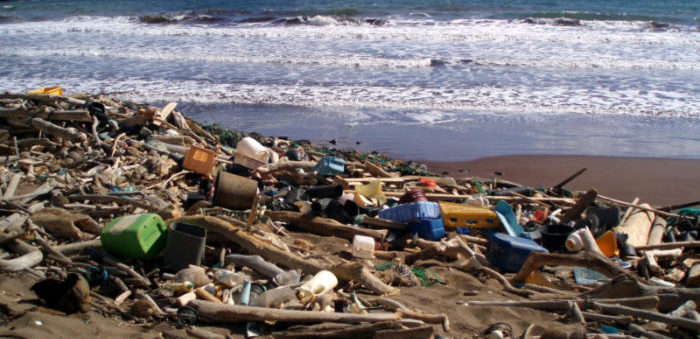About 220 pounds of tangled netting, rope, debris and plastic have been found inside the belly of a dead whale, near to a Scottish beach. The dead sperm whale was found from a local whale research group on November 30, on Luskentyre Beach in the Outer Hebrides.
Specifically, the 10-year old male whale was 46 feet long and weighted more than 20 tons according to the research team Scottish Marine Animal Stranding Scheme, which found the mammal upon the sand surface.
Moreover, the research team noted that the litter had turned into a massive ball in the whale’s stomach involving bundles of rope, fishing nets, plastic bags and cups, gloves etc. The reasons of the mammal’s death still remain unclear, while it is considered that the debris had a negative impact on its digestive process.
With the finding of debris inside dead whales, dolphins or turtles being a common seen phenomenon, the Scottish Marine Animal Stranding Scheme further informed that whales hold in their stomach the largest amount of litter.
This is an unusual but sadly not unprecedented case — sperm whales and other deep-diving beaked whales have been found stranded around the coasts of Europe for years with marine litter of some description in their stomachs. This is a grim reminder of the effects of plastic debris in the marine environment.
…Dr. Brownlow said. He and his team collects facts and investigate stranded marine animals around Scotland.
Since the whale was weighted more than 20 tons, the research team with the aid of the local Coast Guard had no choice but to bury it under the beach. For the records, the executive director of Whale and Dolphin Conservation North America in Massachusetts Regina Asmutis-Silvia, commended that most whales do not end up on the beach like the one in Scotland and about 2% of whales have been reported to die because of stranding.
And while this stranding certainly draws attention to marine debris, a problem that we can all certainly help to resolve, it should also draw attention to the loss of the whale, a key player in our own survival.
… Regina Asmutis-Silvia added.
Concluding, the previous year a similar occasion was reported, as a dead sperm whale with 6 kg of garbage in its stomach has been found in Indonesia. Overall, plastic debris and marine litter continue invading into the oceans, harming the environment and impacting the human’s health.






























































